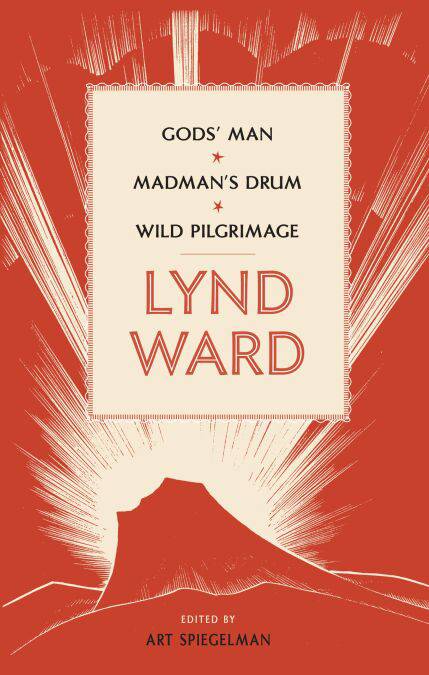
- Retrait gratuit dans votre magasin Club
- 7.000.000 titres dans notre catalogue
- Payer en toute sécurité
- Toujours un magasin près de chez vous
- Retrait gratuit dans votre magasin Club
- 7.000.0000 titres dans notre catalogue
- Payer en toute sécurité
- Toujours un magasin près de chez vous
Description
Edited by Art Spiegelman, author of the Pulitzer Prize-winning graphic novel Maus
A wordless novel in woodcuts from Lynd Ward, a pioneering artist/novelist who was “an unmistakable soul-companion to . . . Frank Capra and John Steinbeck, but also Fritz Lang and Franz Kafka” (Jonathan Lethem)
From the Great Depression to WII, America’s first great graphic novelist bore witness to the roiling, dizzying national scene as both a master printmaker and a socially committed storyteller.
In this, the first of two volumes collecting all his woodcut novels, The Library of America brings together Lynd Ward’s earliest books, published when the artist was still in his twenties. Gods’ Man (1929), the audaciously ambitious work that made Ward’s reputation, is a modern morality play, an allegory of the deadly bargain a striving young artist often makes with life. Madman’s Drum (1930), a multigenerational saga worthy of Faulkner, traces the legacy of violence haunting a family whose stock in trade is human souls. Wild Pilgrimage (1932), perhaps the most accomplished of these early books, is a study in the brutalization of an American factory worker whose heart can still respond to beauty but whose mind is twisted in rage against the system and its shackles.
The images reproduced in this volume are taken from prints pulled from the original woodblocks or first-generation electrotypes. Ward’s novels are presented, for the first time since the 1930s, in the format that the artist intended, one image per right-hand page, and are followed by five essays in which he discusses the technical challenges of his craft. Art Spiegelman contributes an introductory essay, “Reading Pictures,” that defines Ward’s towering achievement in that most demanding of graphic-story forms.
A wordless novel in woodcuts from Lynd Ward, a pioneering artist/novelist who was “an unmistakable soul-companion to . . . Frank Capra and John Steinbeck, but also Fritz Lang and Franz Kafka” (Jonathan Lethem)
From the Great Depression to WII, America’s first great graphic novelist bore witness to the roiling, dizzying national scene as both a master printmaker and a socially committed storyteller.
In this, the first of two volumes collecting all his woodcut novels, The Library of America brings together Lynd Ward’s earliest books, published when the artist was still in his twenties. Gods’ Man (1929), the audaciously ambitious work that made Ward’s reputation, is a modern morality play, an allegory of the deadly bargain a striving young artist often makes with life. Madman’s Drum (1930), a multigenerational saga worthy of Faulkner, traces the legacy of violence haunting a family whose stock in trade is human souls. Wild Pilgrimage (1932), perhaps the most accomplished of these early books, is a study in the brutalization of an American factory worker whose heart can still respond to beauty but whose mind is twisted in rage against the system and its shackles.
The images reproduced in this volume are taken from prints pulled from the original woodblocks or first-generation electrotypes. Ward’s novels are presented, for the first time since the 1930s, in the format that the artist intended, one image per right-hand page, and are followed by five essays in which he discusses the technical challenges of his craft. Art Spiegelman contributes an introductory essay, “Reading Pictures,” that defines Ward’s towering achievement in that most demanding of graphic-story forms.
Spécifications
Parties prenantes
- Auteur(s) :
- Editeur:
Contenu
- Nombre de pages :
- 864
- Langue:
- Anglais
- Collection :
Caractéristiques
- EAN:
- 9781598533965
- Date de parution :
- 04-09-17
- Format:
- Ebook
- Protection digitale:
- Adobe DRM
- Format numérique:
- ePub 3 Fixed Layout

Les avis
Nous publions uniquement les avis qui respectent les conditions requises. Consultez nos conditions pour les avis.






